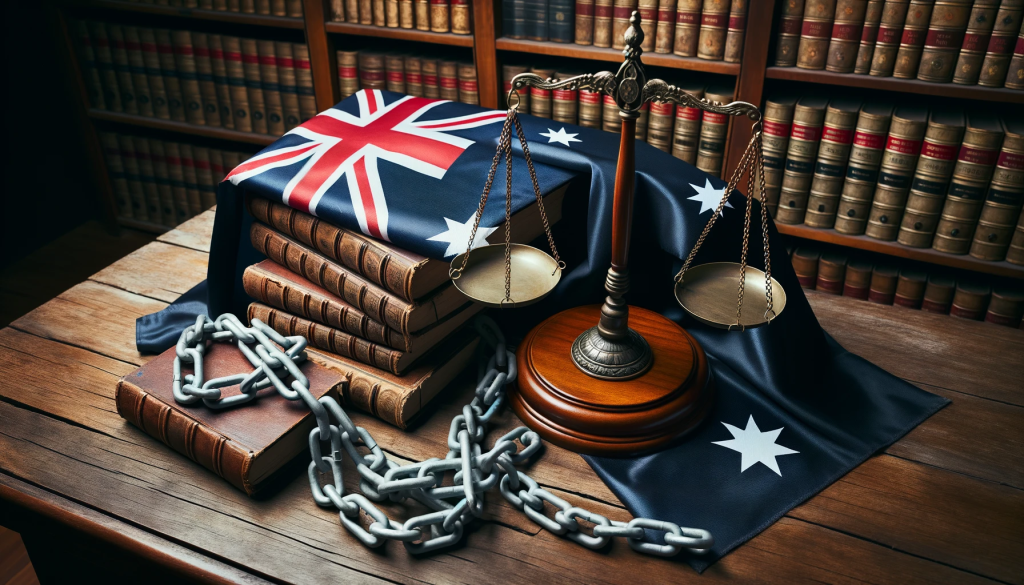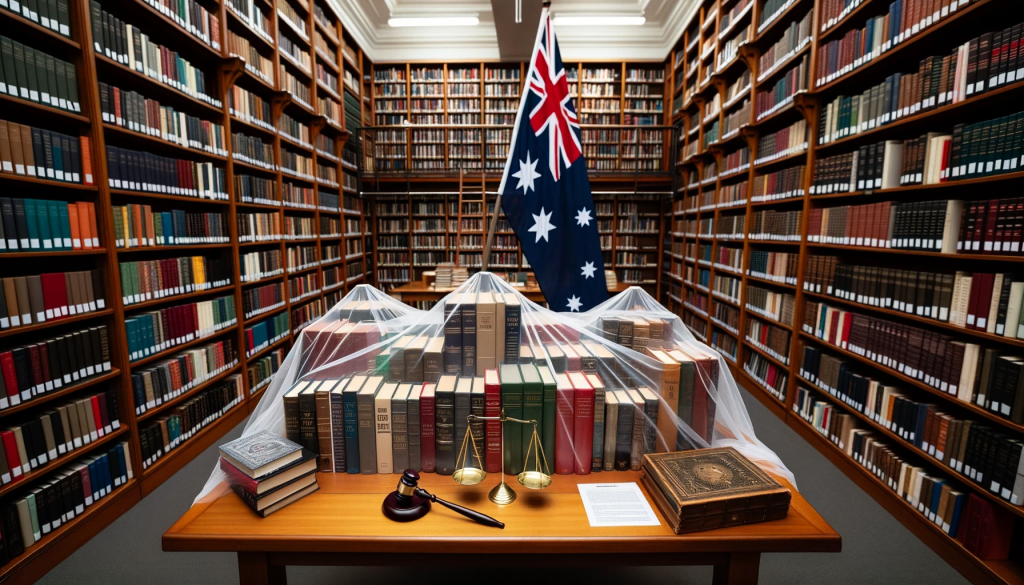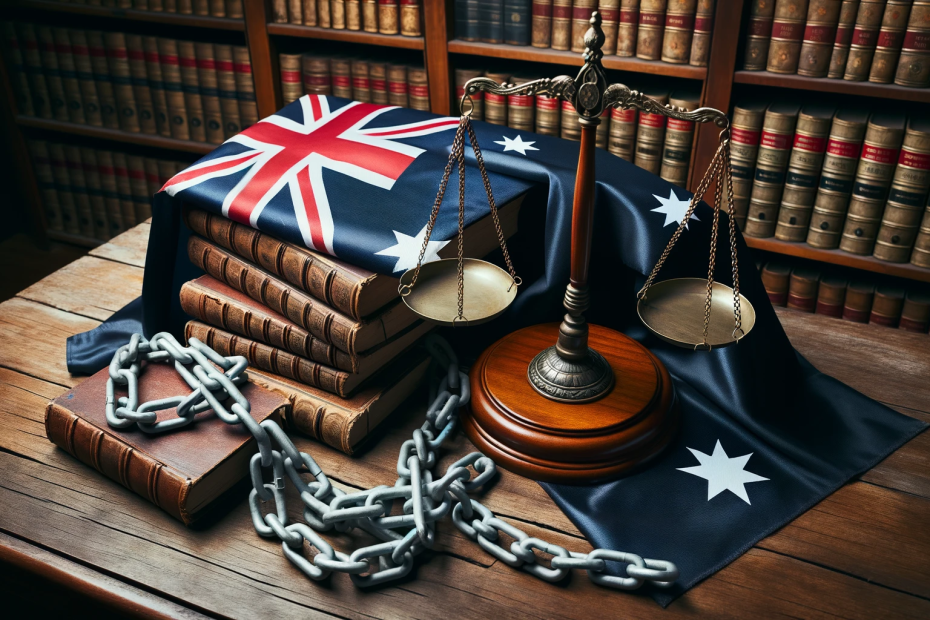Books have always played a significant role in shaping society and sparking conversations. However, some books have faced censorship and banning in Australia, raising questions about freedom of expression and access to information.
Article Contents
Background of book censorship in Australia
Australia has a history of book censorship that dates back to the early 20th century. The government has implemented laws to regulate and restrict the availability of certain books, often due to their explicit content, controversial themes, or potential to incite violence or hatred. The classification system, administered by the Australian Classification Board, categorizes publications into different levels of restricted access.

Implications and controversies surrounding banned books
The banning of books in Australia has been met with both support and criticism. Supporters argue that it protects vulnerable audiences, maintains cultural values, and prevents harm. However, critics argue that banning books limits freedom of speech, restricts access to diverse ideas, and stifles creativity.
Controversies arise when banned books are deemed important literary works or educational resources. Many argue that open dialogue and critical analysis should be encouraged to understand different perspectives and learn from history’s lessons.
It is important to navigate this censorship debate carefully, considering the balance between protecting societal values and nurturing intellectual freedom. By engaging in constructive discussions, we can create an environment that respects diverse opinions while upholding the values of a democratic society.
Notable Banned Books in Australia
1. Lolita by Vladimir Nabokov
Lolita, a controversial novel by Vladimir Nabokov, was banned in Australia for its explicit and sensitive subject matter. The book explores the unhealthy relationship between a middle-aged man and a young girl, which sparked concerns about child exploitation and pornography. Despite its literary acclaim and thought-provoking themes, the book faced censorship due to its controversial content.
2. American Psycho by Bret Easton Ellis
Another banned book in Australia is American Psycho by Bret Easton Ellis. This novel delves into the disturbed mind of a wealthy investment banker who engages in violent and sadistic behavior. The book’s graphic violence, sexuality, and explicit descriptions were deemed too graphic and offensive, leading to its censorship in Australia.
The banning of books in Australia is often done to protect the public from potentially harmful or offensive content. While censorship aims to safeguard societal values, it also raises questions about the freedom of expression and the boundaries of artistic expression. These banned books continue to spark discussions about censorship and the role of literature in challenging societal norms.
Reasons for Book Bans
Controversial themes and explicit content
In Australia, book bans are often imposed due to controversial themes and explicit content. Some books may tackle sensitive subjects or contain explicit language or scenes that are deemed inappropriate for certain audiences, particularly children. The intention behind these bans is to protect readers from potentially offensive or harmful material.
Obscenity and offensive language
Books with obscene or offensive language are also likely to be banned in Australia. The use of derogatory or discriminatory language can be considered harmful and offensive to certain groups of people. Book bans in this context are aimed at maintaining social harmony and preventing the spread of offensive content.
Some Uncommon Reasons for Banning a book in Australia
Aside from the more traditional reasons for book bans, there have been some uncommon reasons as well. These include political censorship, concerns about national security, or even the preservation of cultural or religious values. In these cases, books may be banned to protect certain ideologies or ensure conformity with societal norms.
The Peaceful Pill Handbook
The Peaceful Pill Handbook is a book that gives information about assisted suicide and voluntary euthanasia. It was written by Philip Nitschke, an Australian doctor, and Fiona Stewart, a lawyer. Initially, the book was given a rating for adults only in Australia, but this decision was reversed after appeal from the Australian Attorney-General. In 2007, the publication was officially banned by the Classification Board. Furthermore, in 2009, the Australian government included the website for the handbook in its internet filtering plan called the Clean Feed.
It is important to note that while book bans may limit access to certain works, they can also generate discussions surrounding freedom of expression and the role of censorship in society. Some argue that book bans infringe upon the right to information and limit creative expression, while others see them as necessary measures to safeguard certain values or protect vulnerable readers.
Censorship Laws in Australia

Australia has a comprehensive classification system in place to regulate the availability of books and other forms of media.
Overview of the classification system
The classification system categorizes books into different categories based on their content. These categories include G (General), PG (Parental Guidance), M (Mature), MA15+ (Mature Accompanied), and R18+ (Restricted). This system ensures that books are appropriate for their intended audience and helps to protect children from potentially harmful content.
The role of the Classification Board
The Classification Board plays a crucial role in classifying books and determining whether they should be banned. They assess the content of books and consider factors such as violence, sex, and drug use. If a book is deemed to be offensive, obscene, or likely to cause harm, it may be banned in Australia.
It is important to note that the banning of books in Australia is relatively rare. However, there have been cases where books have been banned or restricted due to their content. These decisions are made to uphold community standards and protect individuals from potentially harmful material.
Overall, censorship laws in Australia aim to strike a balance between freedom of expression and the need to protect individuals, particularly children, from explicit or harmful content. While some may argue that censorship limits intellectual freedom, others believe that it is necessary to maintain a safe and inclusive society.
Impact of Banned Books
5.1 Intellectual freedom and freedom of expression
Banned books in Australia have a significant impact on intellectual freedom and freedom of expression. When books are banned, it restricts the access to diverse ideas and perspectives, limiting the ability to engage in critical thinking and open dialogue. Intellectual freedom is essential in a democratic society and plays a vital role in fostering creativity, innovation, and the healthy exchange of ideas. By banning books, we hinder intellectual growth and inhibit free expression.
5.2 Challenges faced by authors and publishers
Banning books poses challenges for authors and publishers. It stifles creativity and artistic expression, as authors may self-censor to avoid potential controversy or backlash. Publishers face economic constraints as banned books cannot be sold, leading to financial losses. Additionally, the banning of books prevents authors from reaching a wider audience and inhibits the distribution of their work. It limits the diversity of literature available and restricts readers’ access to a wide range of ideas and perspectives.
Overall, the impact of banned books in Australia goes beyond the mere restriction of certain materials. It affects intellectual freedom, hinders creativity, and creates challenges for authors and publishers. It is crucial to promote open-mindedness, freedom of expression, and the availability of diverse literary works to foster a vibrant and inclusive society.
Challenging Book Bans
6.1 Efforts to overturn bans in Australian history
In Australia’s history, there have been instances where books faced bans due to their controversial content. However, passionate individuals and organizations have worked tirelessly to challenge these bans and promote freedom of speech. Through petitions, public demonstrations, and legal appeals, they have successfully overturned many book bans, ensuring access to diverse and thought-provoking literature.
6.2 Strategies for advocating against censorship
If you believe in the importance of free expression and want to advocate against book bans, here are some strategies you can employ:
- Raise awareness: Educate the public about the impact of book bans on intellectual freedom. Engage in conversations, write articles, or organize events to shed light on the issue.
- Join forces: Collaborate with like-minded individuals, organizations, and book clubs to amplify your message and create a stronger advocacy network.
- Empower communities: Encourage local libraries, schools, and community centers to promote diverse literature and resist censorship pressures.
- Support banned authors: Purchase and promote the works of authors whose books have been banned. Show your solidarity and spread the word about their stories.
- Engage in legal action: In extreme cases, seek legal counsel and challenge book bans through the court system. Advocate for the protection of intellectual freedom and the right to access information.
By actively participating in the fight against censorship, you can contribute to a society that values free speech and embraces diverse perspectives in literature.
Conclusion
In conclusion, while Australia has experienced instances of book censorship, it is essential to recognize the importance of freedom of literature. The banning of books raises questions about the limits on expression and the power of censorship. As society evolves, it is crucial to continue reflecting on the future of book censorship in Australia. Striking a balance between protecting sensitive content and preserving the right to access diverse literary works is a continuous challenge. Ultimately, open discussions and ongoing efforts to promote freedom of expression will play a vital role in shaping the future of book censorship in Australia.
